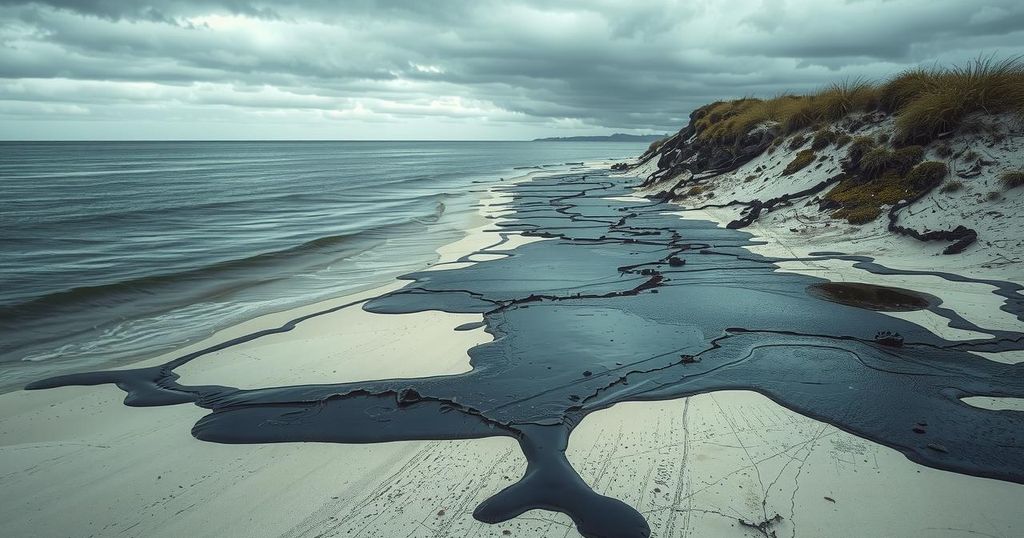Ecuador’s Petroecuador declared force majeure on March 18, 2025, following a landslide-induced oil spill that contaminated the Esmeraldas River. The event has severely affected over 500,000 residents, leading to a water crisis and 20 confirmed fatalities. The emergency response includes suspending crude exports and initiating recovery efforts, while a state of emergency has been declared for environmental preservation.
On March 18, 2025, Petroecuador, Ecuador’s state oil company, declared force majeure on its Trans-Ecuadorian Pipeline System (SOTE) following a significant oil spill that began on March 13. The catastrophic spill, which was caused by a landslide that ruptured the pipeline, has contaminated the Esmeraldas River, impacting over 500,000 residents grappling with a severe water crisis.
The landslide was initiated by heavy rains and harsh weather, leading to 20 fatalities as reported on March 19. In response to the disaster, Petroecuador suspended exports of Oriente crude and invoked the force majeure clause to avoid penalties and contract breaches. The emergency declaration remains valid for 60 days to facilitate resource allocation for mitigating impacts on hydrocarbon activities.
The spill has profoundly affected regions across western Ecuador, particularly the provinces of Manabí, Guayas, Los Ríos, El Oro, Esmeraldas, Loja, Chimborazo, Cotopaxi, Pichincha, and Imbabura. According to the National Secretariat of Risk Management (SGR), the incident has resulted in 20 confirmed deaths, 6 missing individuals, and widespread damage, including 29,984 houses, of which 138 were destroyed.
The oil spill occurred in the El Vergel area of Quinindé, affecting over 32 km and contaminating at least five rivers. Although initial reports dated the spill to March 15, it was confirmed that the landslide causing the rupture happened on March 13. As of March 17, local officials indicated that approximately 15,000 individuals had directly suffered from the spill’s consequences.
Esmeraldas Mayor Vicko Villacis estimated that about 500,000 individuals faced water shortages due to the contamination of their primary water source. The spill was estimated to have released approximately 200,000 barrels of oil, marking it as the worst environmental disaster in Ecuador’s coastal region in eight years.
In light of the crisis, Petroecuador initiated measures to recover the spilled crude and ensure the delivery of potable water to affected communities. The National Emergency Operations Committee (COE) has mandated an environmental emergency in Esmeraldas province, impacting wildlife habitats, while also ordering the closure of nearby beaches. Marine biologist Eduardo Rebolledo highlighted the severe ecological impact, stating, “There are no life forms in the water” of the two affected rivers, emphasizing the region’s dire condition.
The spill has prompted significant operational responses from both Petroecuador and government authorities, highlighting the intersection of environmental preservation and community health during disaster responses.
The oil spill in Ecuador, caused by a landslide on March 13, led to the declaration of force majeure by Petroecuador and a state of emergency affecting hundreds of thousands of residents. Significant loss of life and extensive environmental damage highlight the pressing need for effective disaster management strategies. The ongoing recovery operations aim to address the immediate needs of the affected population while mitigating the ecological impact of the spill.
Original Source: watchers.news






